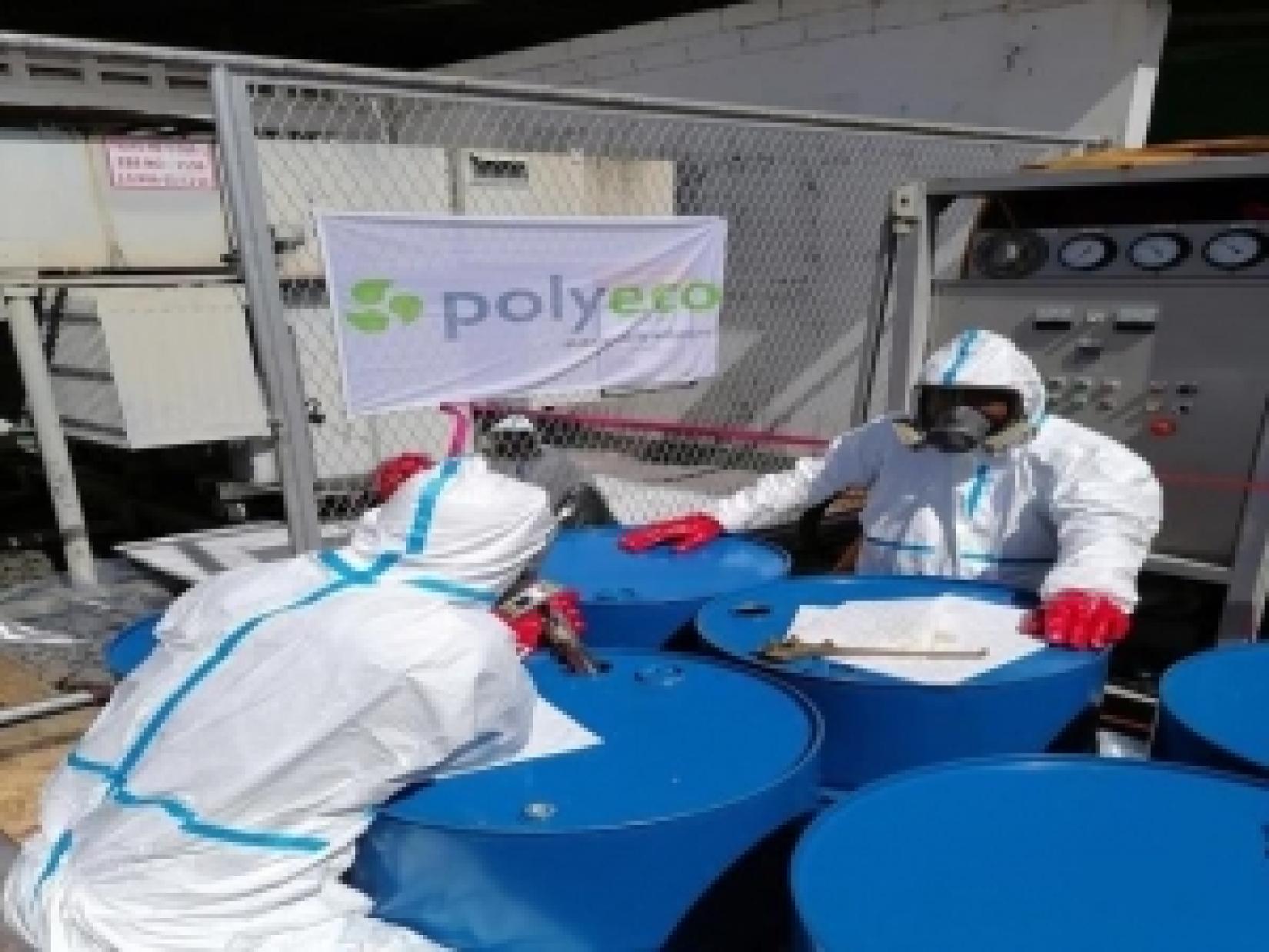FAO supports the removal of over 50 tonnes of PCBs from the Caribbean
07 July 2021
- The safe disposal of PCBs-contaminated oil and equipment is one of many major challenges confronting the Caribbean.

The lack of dedicated facilities in the region to safely dispose of or recycle PCBs and other hazardous waste streams including obsolete pesticides, their containers and contaminated equipment and e-waste pose serious health and environmental risks.
PCBs, or polychlorinated biphenyls, are highly toxic industrial compounds that when subject to prolonged or repeated exposure (even in small amounts) can cause developmental delays, neurological disorders, and a range of other health challenges in women, men and children.
In the Caribbean, most PCBs are imported and widely used in agriculture, heavy industry and the electric power generation industry.
Over time, PCBs stocks and waste have accumulated due to lack of proper disposal options in the Caribbean. According to the Regional Project Coordinator for FAO’s Caribbean Pesticide Management Project Mr. Guy Mathurin, “Proper disposal is critical as prolonged and poor storage of PCBs and other environmental waste can pollute the surrounding environment, contaminating the soil and waterbodies, including coastal areas, having long-term effects on human health, crops, livestock and habitats”.
FAO’s GEF-funded Caribbean Regional Pesticide Management Project in collaboration with the Basel Convention Regional Centre (based in in Trinidad and Tobago), has been working with four Caribbean countries: Barbados, Antigua and Barbuda, Suriname and Trinidad and Tobago over several years to identify, inventory, repackage, safeguard and export reported quantities to Europe for environmentally-safe disposal. POLYECO, a waste management company based in Athens, Greece was contracted by FAO in 2019 to undertake the safeguarding and disposal exercise. To date, 54 tonnes of PCBs contaminated equipment and oil has been safeguarded and exported to Europe from the four beneficiary countries.
Although the process of issuing the licenses for transboundary movement of the waste according to the Basel Convention and EU regulations was very time-consuming and despite the restrictions imposed by the COVID-19 pandemic, the project was able to surmount these challenges to complete the repackaging, safeguarding and export phases successfully. Countries now await the destruction certificates, which will be issued after the waste is treated by high-temperature incineration at a specialized facility in France.
Mr. Hasmath Ali, Registrar Pesticides and Toxic Chemicals, Ministry of Health, Trinidad and Tobago stated: “Given the additional challenges posed by the ongoing pandemic, I was worried that the consolidation, repackaging and export of the PCBs waste would not have taken place. I have to give kudos to FAO, the BCRC, POLYECO and the others regional and national partners who made this exercise possible. The removal of the 54 tonnes of PCBs waste is welcomed, given the sensitive nature of the Caribbean environment and especially since we do not possess the necessary infrastructure to remediate such chemicals.”
For more information please contact:
Firhaana Bulbulia
Communications Consultant
Disposal of Obsolete Pesticides including POPs, Promotion of Alternatives and Strengthening Pesticides Management in the Caribbean
FAO Sub-Regional Office for the Caribbean
Email: firhaana.bulbulia@fao.org



